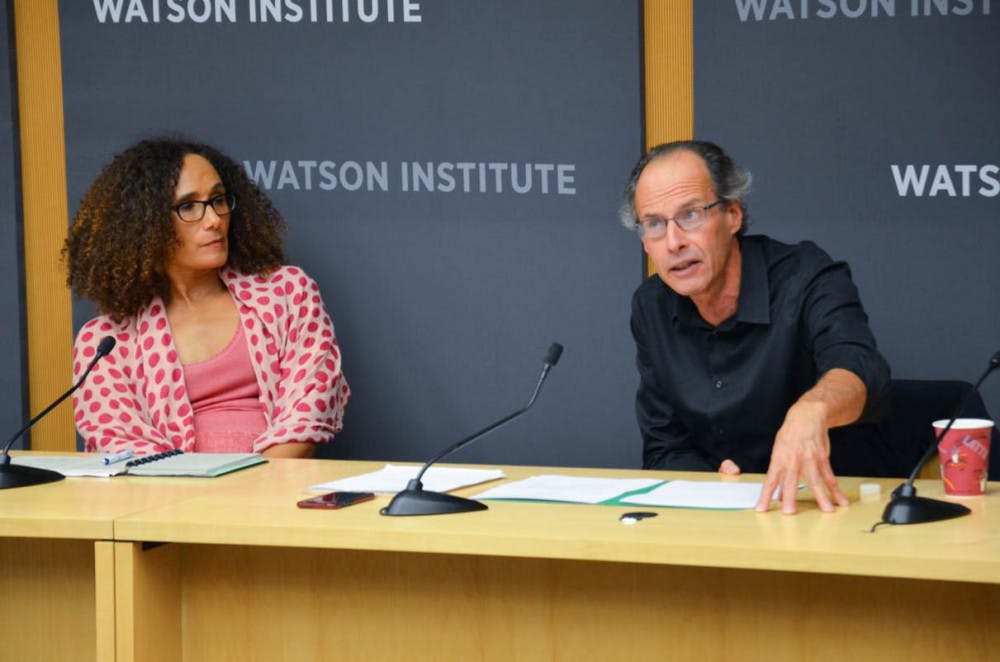Tricia Rose, director of the Center for the Study of Race and Ethnicity in America and professor of Africana studies, and James Morone, director of the Taubman Center for American Politics and Policy, spoke on the unpredictable, yet historically consistent, role of race in the 2016 presidential election at the Watson Institute for International and Public Affairs Joukowsky Forum Thursday.
Morone opened the talk by framing the 2016 election through a historical context of racism in American politics.
“Racism isn’t new. Nativism isn’t new. But something else is new,” Morone said, before recounting the story of the United States’ first contested election in 1800. John Adams’ Federalist party campaigned on an anti-immigrant platform, and Thomas Jefferson’s Democratic-Republicans won by antagonizing slaves while recruiting white foreigners. After the election, the supremacy of Southern slave-owning whites continued for half a century.
“Now we have one party that is built on the white vote — the Republican Party,” Morone said. “What we have politely ignored now has become acute, lying right on the surface.”
Morone then transitioned to questioning Rose, asking what she saw as the fundamental conclusions we can draw from this election.
“Trump is for me a Rorschach test for an everyday populace and its understanding of race in America,” Rose said. “He helps us see something in ourselves. … I’m not surprised by him at all. I don’t find him shocking at all.”
Rose went on to further describe white America’s “Kool-Aid of colorblindness,” which she said has acted as a cover for a softer form of racism that actively disempowers and disenfranchises African-Americans to this day.
“The power of racial dog-whistling has been underestimated” because, without it, the middle class would act as a single voting bloc around issues of class,” Rose said.
Morone asked Rose why U.S. Sen. Bernie Sanders, I-VT, had been unsuccessful in using class-based rhetoric to capture the votes of African-Americans, especially those in the South and those over 35.
Sanders “thought he could run a progressive campaign without talking about race. … He wasn’t ready to talk about race, and that’s insane,” Rose replied.
Heesoo Kim ’19, in the later audience-question portion of the afternoon, asked Rose and Morone: “Is blue-collar, white society intrinsically racist as a community, or is the racism in blue-collar whites actually instilled in them by the elites in order to get their votes?”
In response, Rose said that the long American history of whiteness has always been defined “in framework and in contrast and in contradiction with other racial groups,” whether it be Native Americans, African slaves, Chinese laborers or other races. Morone described racism as “crack cocaine” for politicians — an easy and powerful way to lure white voters, but something politicians and the public should work hard to resist.
Ken White GS, a first-year PhD candidate in political science, asked about the effect of this election, and specifically Donald Trump, on the role of truth in our political system.
“We like to think that elections are about policy, … but it’s really a form of tribalism” around party loyalty and regional culture, Morone responded.
The discussion concluded with some optimism from both professors — Rose hailed the potential of “coordinated, multifaceted social movements” to change minds, as seen in the gay rights movement.
“It’s your future,” Morone said to a mostly student-comprised audience. “I’m really optimistic about how the next generation is going to deal with race.”





